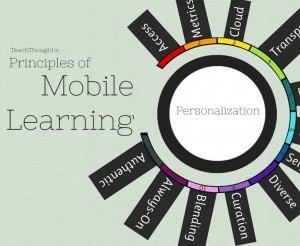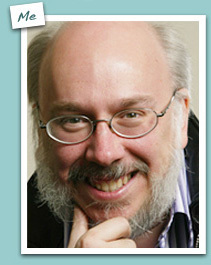Robin Good: Participatory culture writer and book author Henry Jenkins interviews cyberculture pioneer Howard Rheingold (Net Smart, 2012) by asking him to explain some of the concepts that have helped him become a paladin of the and "new literacies" so essential for survival in the always-on information-world we live in today....
"curators" are the ones creating the metadata needed to empower our emerging collective intelligence.
Curation Is The Social Choice About What Is Worth Paying Attention To.
Good stuff. In-depth. Insightful. 8/10
Full interview: http://henryjenkins.org/2012/08/how-did-howard-rheingold-get-so-net-smart-an-interview-part-three.html
Via
Robin Good,
Gust MEES



 Your new post is loading...
Your new post is loading...












Learning on the move!
12 Principios para tomar en cuenta sobre m-learning.
These are interesting principles of Mobile Learning that educators should know if they are trying to implement this method.